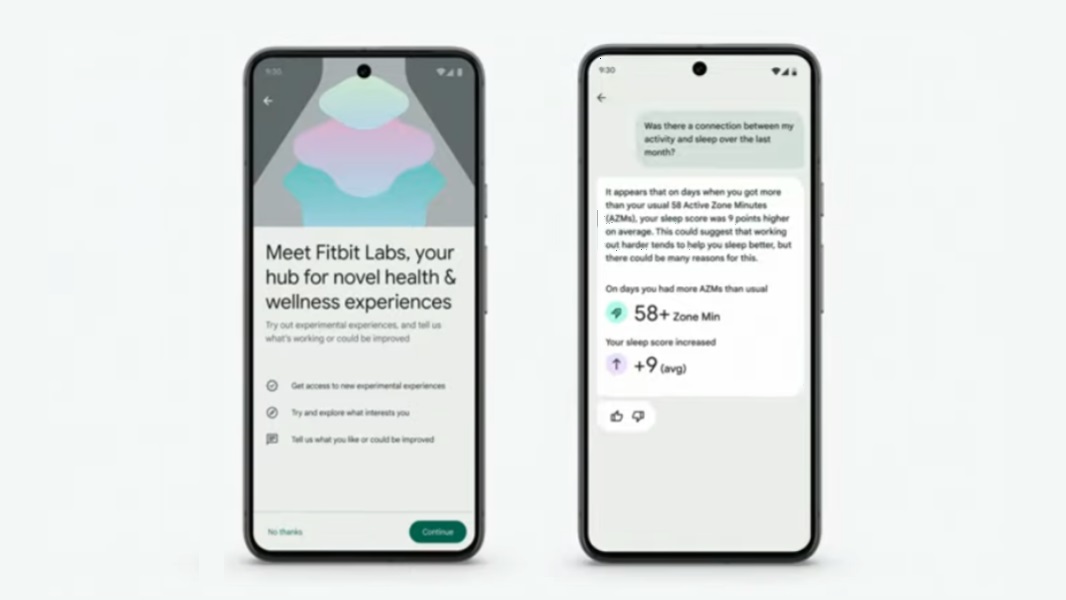Google is Bringing Generative AI to Fitbit
- Paul Thurrott
- Mar 20, 2024
-
1

Google revealed that it will bring generative AI features to Fitbit at its annual health event, The Check Up, this week.
“Today, Pixel Watch and Fitbit trackers do a great job of synthesizing your personal health and fitness data for you to see, track, and explore in the Fitbit app,” Fitbit director of product Florence Thng said during the keynote for The Check Up. “From advanced sleep metrics, to optimizing your fitness routine using your daily readiness score, to assessing your heart rhythm for potential signs of atrial fibrillation, Fitbit can provide valuable data and insight into your holistic health and wellness. Looking ahead, we’re building personal AI into products across our portfolio to bring tailored, personalized insights based on your unique needs and preferences.”
Windows Intelligence In Your Inbox
Sign up for our new free newsletter to get three time-saving tips each Friday — and get free copies of Paul Thurrott's Windows 11 and Windows 10 Field Guides (normally $9.99) as a special welcome gift!
"*" indicates required fields
To advance this goal, Google has created Fitbit Labs, a new experience coming to the Fitbit mobile app that will let Fitbit Premium subscribers experiment with new AI features ahead of their public availability. As we’ve seen of generative AI so far, this technology is particularly good at summarizing content, so one of the chief aims here will be to help users “connect the dots” on their health data to derive meaningful meaning trends.
Fitbit Labs will also use generative AI to create graphs and charts to help users visualize the data better, and there will be a “free-form chat space”—a chatbot, in other words—where users can ask questions. It will offer “more tailored insights based on patterns and sleep schedule, exercise intensity, changes in heart rate variability, resting heart rate, and more,” creating in essence an “on-demand personal health and fitness coach.”
“For example, you could discover that your sleep score is best on the days that you are more active,”
Thng noted. “On a recent vacation with my family, I was put in charge of all the children one day, and I hit my record number of steps and then my best sleep score that night. With these type of tools and features, I’ll be able to then dig deeper into these types of connections. Am I just more active when I’m around children?”
Fitbit will begin to roll out Fitbit Labs to “a limited number of Android users” later this year, and it will work with Google Research, health and wellness expert doctors, and personalized and certified coaches to create a personal health large language model (LLM), based on Gemini, that can “reason about your health and fitness data and provide tailored recommendations similar to how a personal coach would.”
Thng was quick to point out that the features Google will pioneer in Fitbit Labs are not meant to diagnose, treat, mitigate, cure, or prevent any disease, injury, or condition, a reasonable enough qualifier regardless of the use of AI. But then the functionality promised here is really just an advanced version of what Fitbit already tries to do today. I will be surprised if Apple doesn’t announce similar functionality for the Apple Watch later this year.